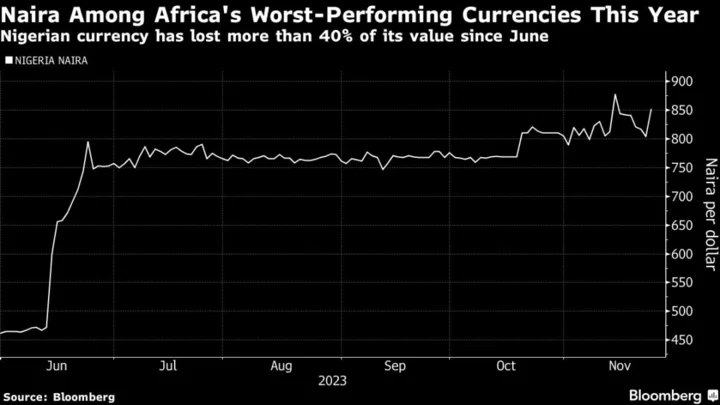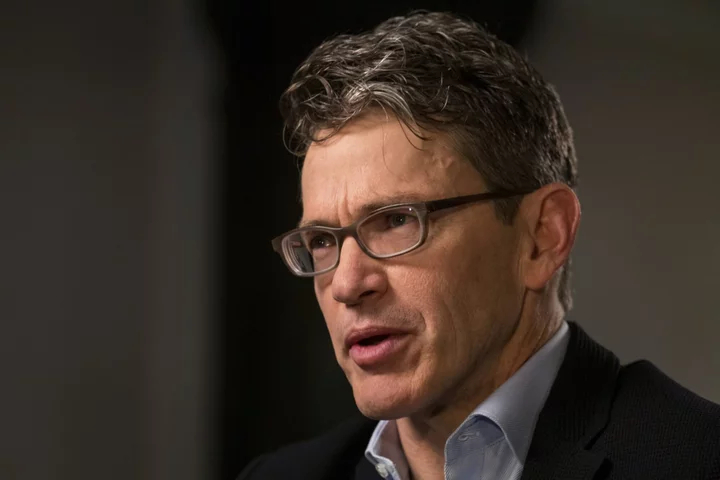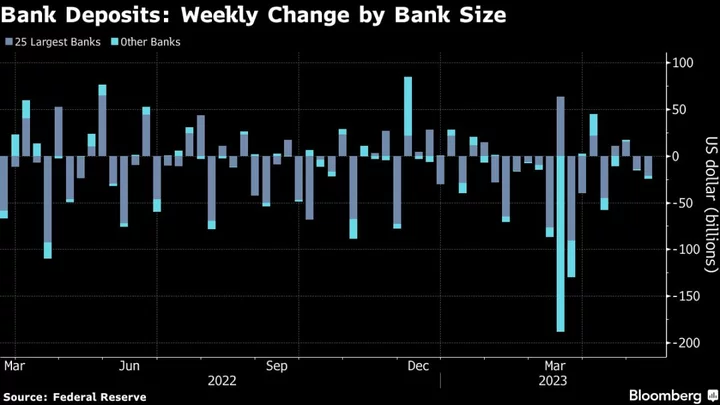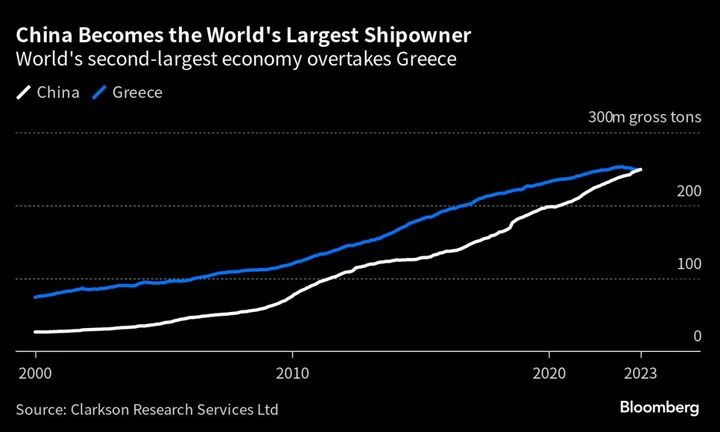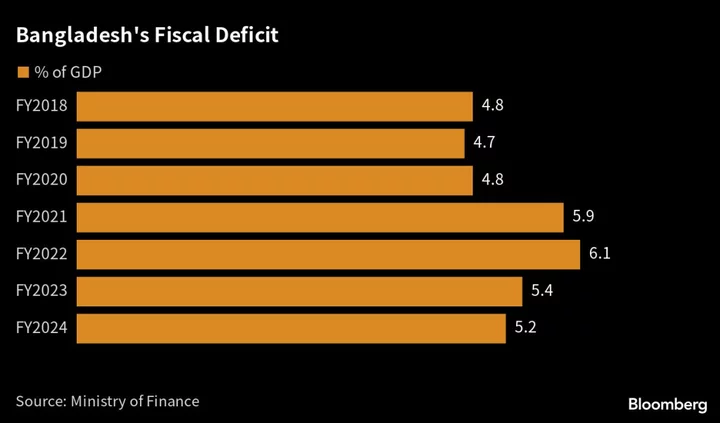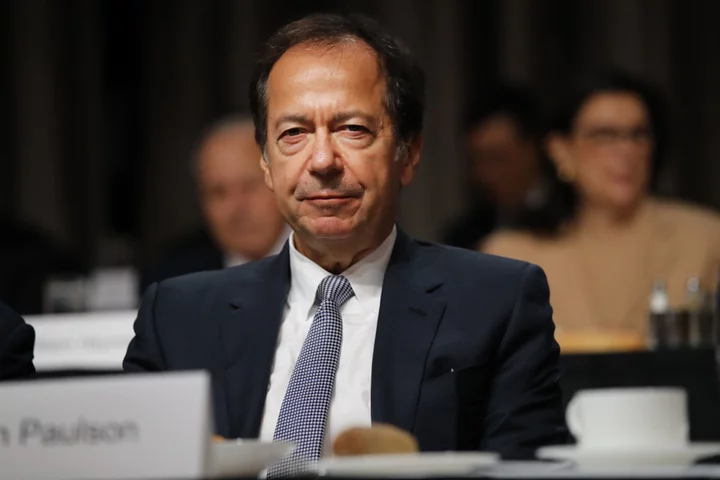Nigeria’s central bank pledged major changes to get a grip on inflation and steady the country’s battered currency, signaling tighter monetary policy ahead.
The Central Bank of Nigeria will switch to inflation targeting instead of trying to control money supply in its battle to slow price increases, Governor Olayemi Cardoso said in a speech to bankers on Friday. The central bank raised its key rate by 25 basis points to 18.75% when it last met in July. Inflation since then has accelerated to an 18-year high of 27.3%. Cardoso also ordered commercial banks to bolster capital reserves.
“The Central Bank of Nigeria is committed to achieving monetary and price stability,” Cardoso said. “We will tackle institutional deficiencies, restore corporate governance, strengthen regulations and implement prudent policies.”
In his first speech since taking office in September, Cardoso said that policymakers would embrace orthodox central banking practice. The address at the end of an annual banking industry dinner, had been highly anticipated for evidence he has a plan to tackle surging price pressures and currency weakness. The naira has slumped by around 40% against the dollar since June.
“As part of this new focus, the CBN has just approved the adoption of an explicit inflation-targeting framework to enhance the effectiveness of monetary policy,” he said, adding that the bank was working out the details. “The CBN will provide forward guidance, enhance transparency and maintain effective communication with the public to anchor expectations.”
Cardoso said that inflation will be effectively managed by tightening monetary conditions during the next two quarters.
His stance signals a willingness to defend the autonomy of the central bank. President Bola Tinubu has previously called for lower lending rates to kick-start growth.
But he provided no hints that policymakers was planning to meet soon after a gathering scheduled for earlier this week was canceled at short notice. He did note that the law required the monetary policy committee to meet four times a year and this threshold had already been achieved for 2023.
The bank has spent the last few months reviewing the effectives of its monetary policy tools and fixing the transmission mechanism to ensure the decisions of the monetary policy committee result in desired objectives, Cardoso said. “Our focus has been on ensuring these meetings are useful and effective,” he said.
Since taking office, Cardoso has hinted at a return to orthodox policies at the central bank and he discussed controlling market liquidity in the speech.
The bank has resorted to increased open market operations and the issuance of the so called OMO papers to reduce excess liquidity in the banking system. “An OMO auction was recently held with a stop rate of 17.5% for the one-year tenor, attracting oversubscription of 350 billion naira, Cardoso said. “Another round of OMO has been approved to further reduce excess liquidity,” he said.
The governor also said that the bank will develop new foreign exchange guidelines and legislation after extensive consultations with banks and FX market operators. It is also in the process of clearing a backlog of dollar demand that has weighed heavily on the naira with part payments made to 31 banks already.
“We have initiated the payment of unsettled forward foreign-exchange obligations, and these payments will continue until all obligations are cleared,” he said.
Soaring food and gasoline prices have driven Nigerian inflation after Tinubu announced reforms that ended a costly fuel subsidy and eased foreign-exchange controls.
Finance Minister Wale Edun, who spoke before Cardoso at the dinner, said the measures were yielding results and the government would “stay the course.”
The message from the central bank governor has been “positive overall,” Razia Khan, chief economist for Africa and the Middle East at Standard Chartered Bank, said in a post on X. “While there’s still a lot of work to be done, there have been important steps in the right direction,” Khan said.
(Updates with fresh details throughout and analyst comment.)
Author: Anthony Osae-Brown, Emele Onu, Ruth Olurounbi and Nduka Orjinmo

